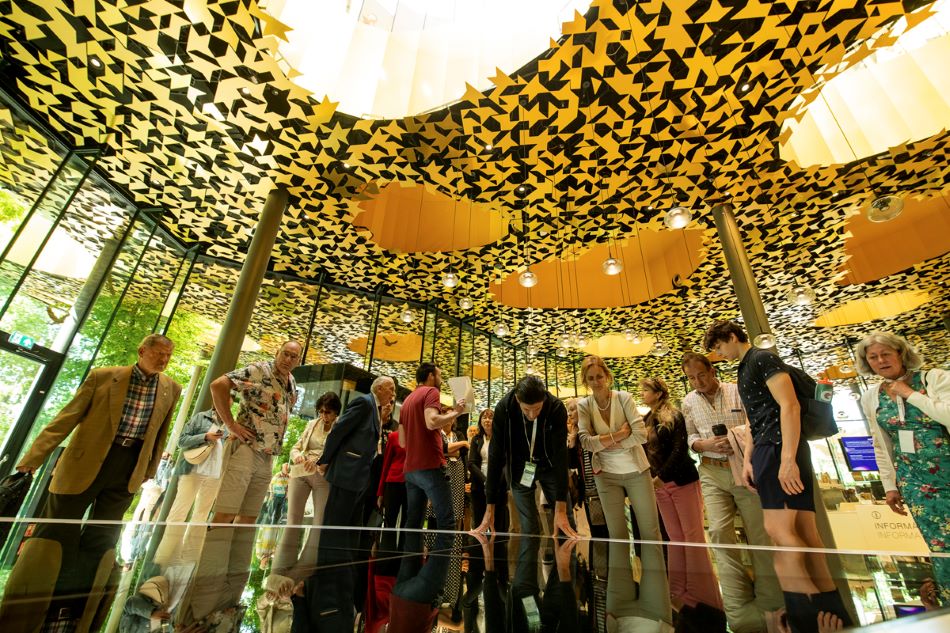10th Friends of Hungary Conference

The Friends of Hungary Foundation, publisher of the Hungary Today and Ungarn Heute news portals, held its 10-year anniversary conference in Budapest. The event began with the opening speech of the Chairman of the Board of Trustees, E. Sylvester Vizi.
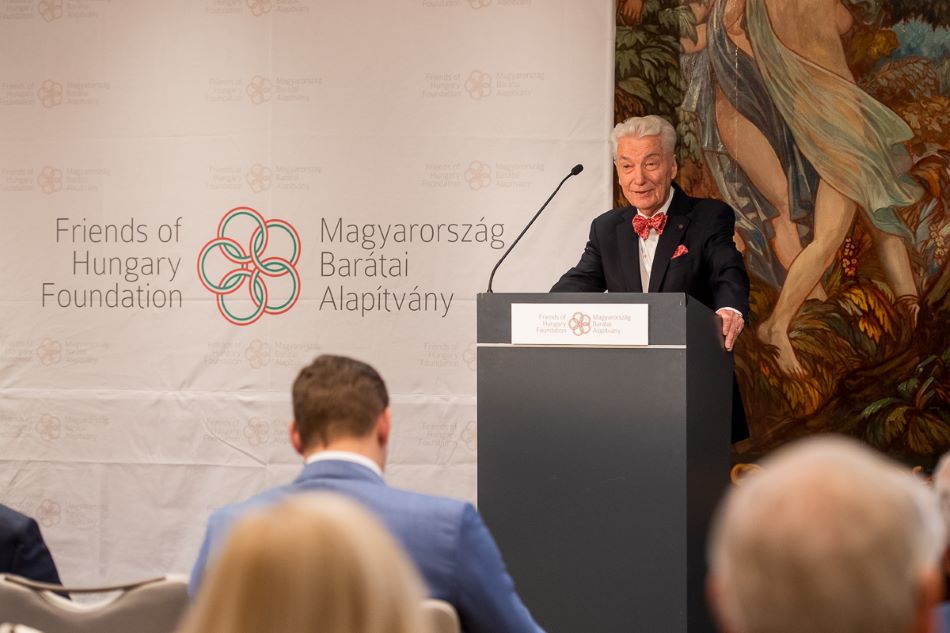
E. Slyvester Vizi emphasized that Budapest is the capital of all Hungarians in the world, which we can be proud of, and which for these two days has become the meeting place for Hungarians visiting from all over the world for the conference.
The Chairman of the Board of Trustees proudly pointed out that the Friends of Hungary Foundation is also the publisher of many books. Among them, the Magyarság Decrétuma c. was published on the 800th anniversary of the publication of the Golden Bull. volume, the foreword of which was written by Dr. Tamás Sulyok, who was then the president of the Constitutional Court and who is currently the president of the Hungarian Republic.
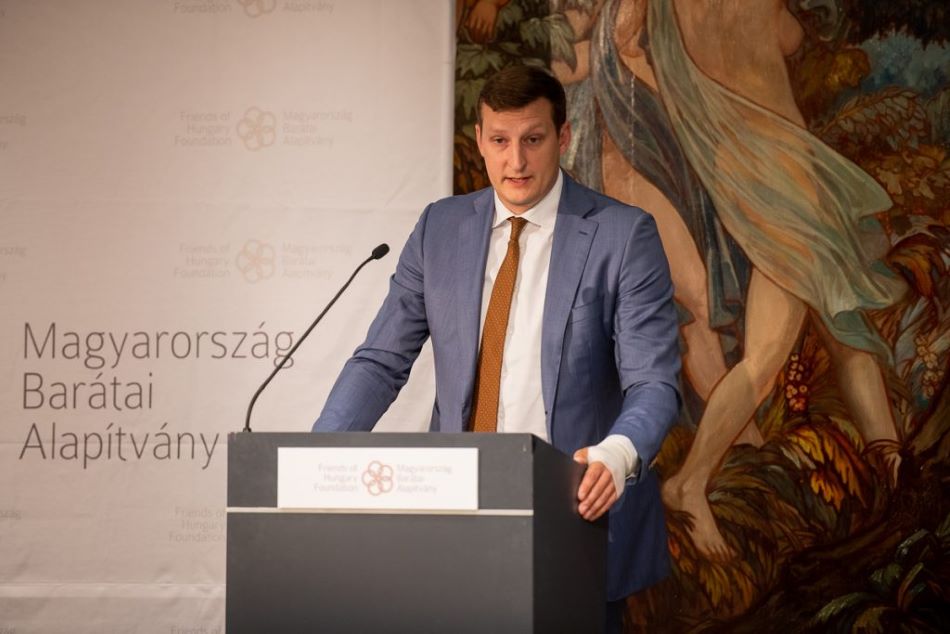
The program continued with the presentation of Miklós Panyi, State Secretary of Parliament and Strategy, Deputy Minister, who presented under the title "Strengthening relations with Hungarians living across the border and in the diaspora". The presentation was followed by questions from the conference participants.
The next speaker was Enikő Győri, Fidesz EP representative, who gave a lecture entitled "Hungary's 20 years in the European Union", in which she emphasized that it is not a question of where we are, in the heart of Europe, our 1000-year-old statehood is not only symbol, but also a link. Hungary has always been a friend of Europe and will remain so. Another issue is that we are a critical nation, which does not always meet the expectations of Brussels and the foreign press, explained the representative. He also touched on the fact that there is a national consensus on Hungary's EU membership, and there is no major party that does not support it. Statistically, Hungarians support EU membership more than the EU average.
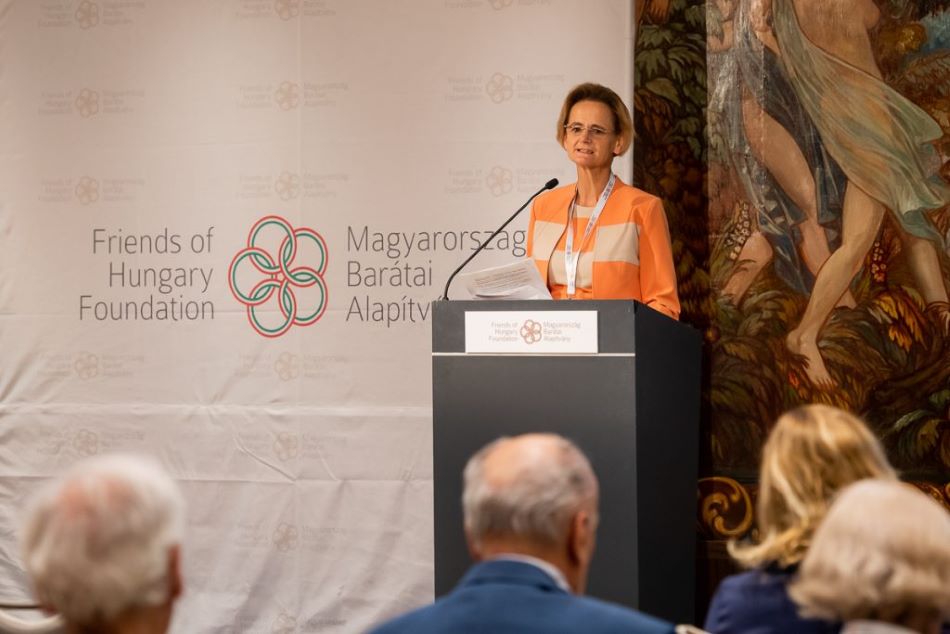
Enikő Győri spoke about the Green Deal policy among several topics affecting the Union, from which, in his opinion, the entire European economy seems to be suffering. Europe has lost its competitiveness and agriculture has been named as the main obstacle to achieving the green goals. Meanwhile, farmers are overwhelmed by administration and have no time to produce. As a result of mass protests, the rules have been relaxed a bit, but there is still room for improvement.
A federalist proposal for the future of the EU has now been made, which would no longer include the member states. This is a German-French proposal that will cause a great response. The presentation was followed by questions from the participants.
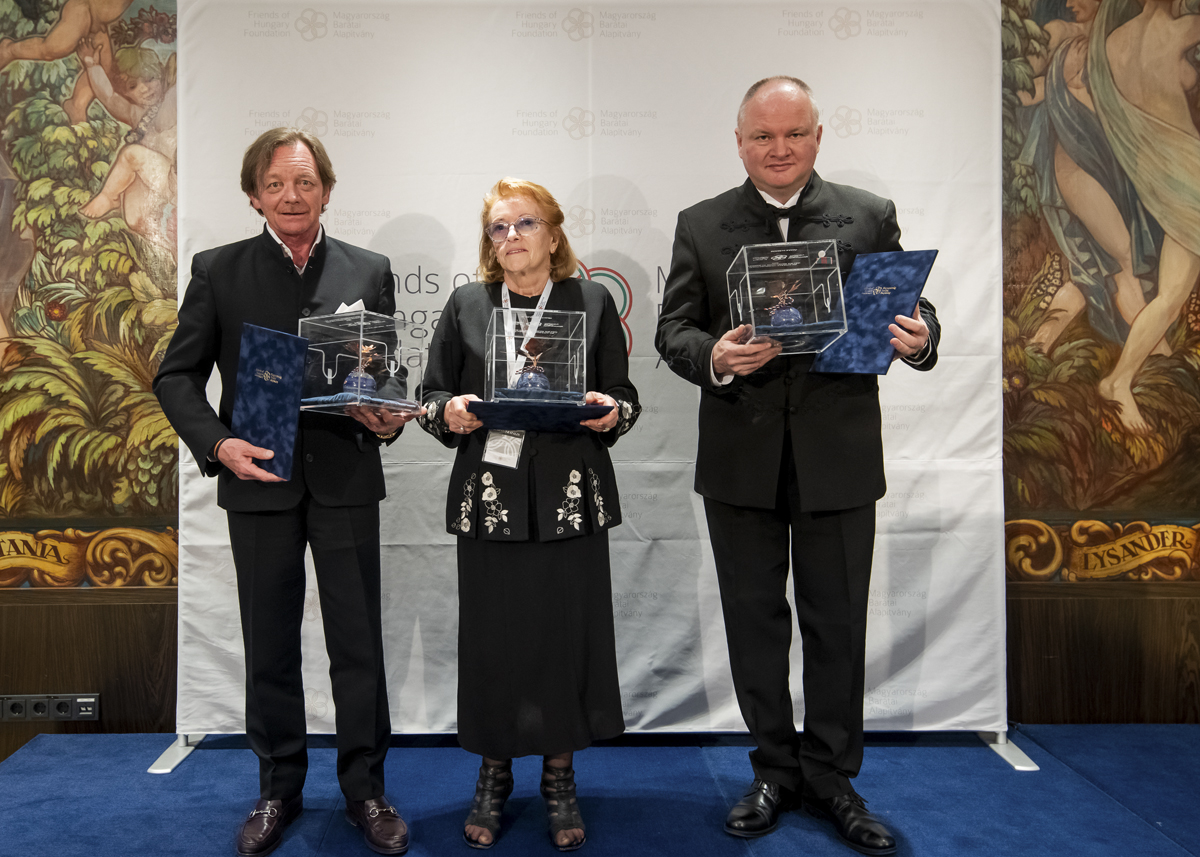
The first day of the conference ended with the Friends of Hungary Award ceremony. The awards were given to: Katalin C. Szabó, Zoltán Fodor-Lengyel, and Cleveland's Bocskai Rádió.
A summary of the first day of the conference can also be read in the Hungary Today article: https://hungarytoday.hu/10th-friends-of-hungary-foundation-conference-opens-its-doors/
Katalin Bényei opened the series of lectures on the second day of the conference. The managing director looked back at the history of the conferences of the past ten years, and then reported on the events that have taken place in the foundation since last year's meeting.
Dániel Deme, communications director, editor-in-chief of Ungarn Heute and Hungary Today, covered the issue of press freedom in his presentation, and talked about how important the role of the individual and individual meetings is in shaping the image of Hungary. The basic mission of the members of the foundation and the participants of the conference should be to get as much real information about the country as possible to people around the world.
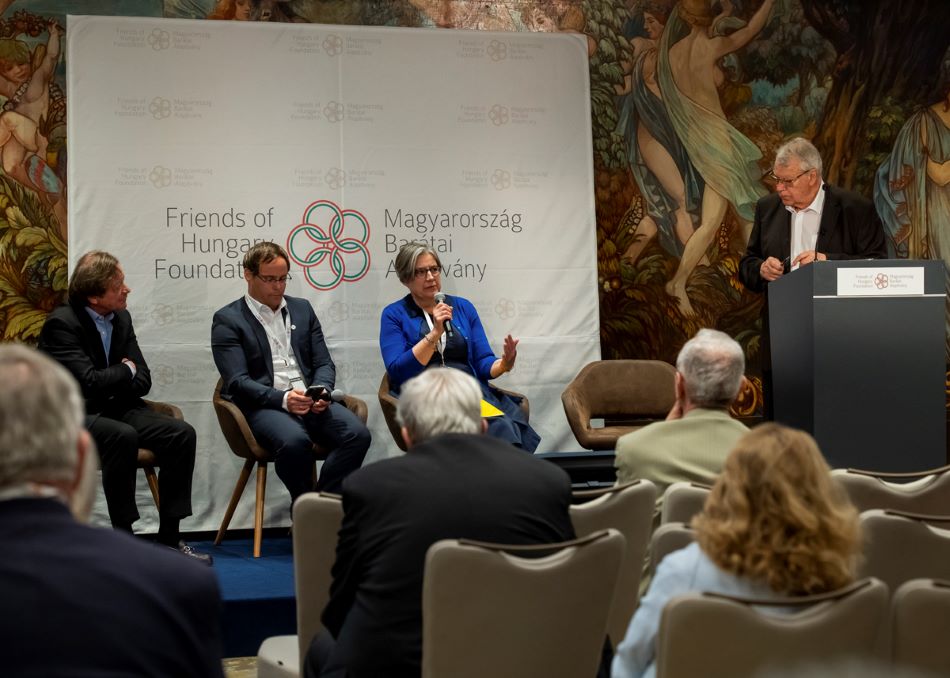
After that, interested parties listened to a two-part panel discussion led by István Fodor, a member of our foundation's board of trustees. The first examined the relationship between Hungary and the European Union, the second Hungary and the United States. In the former, Zoltán Fodor-Lengyel from Spain, Gábor Szabados from Austria and Ágnes Martony from Scotland gave their opinions. According to the view of the interlocutors, the Union is in crisis, there was no time to rethink its operation after the enlargement. The assessment of Hungarian politics is mostly negative, and the individual can do anything against this through his own social network, clarifying misunderstandings through conversations.
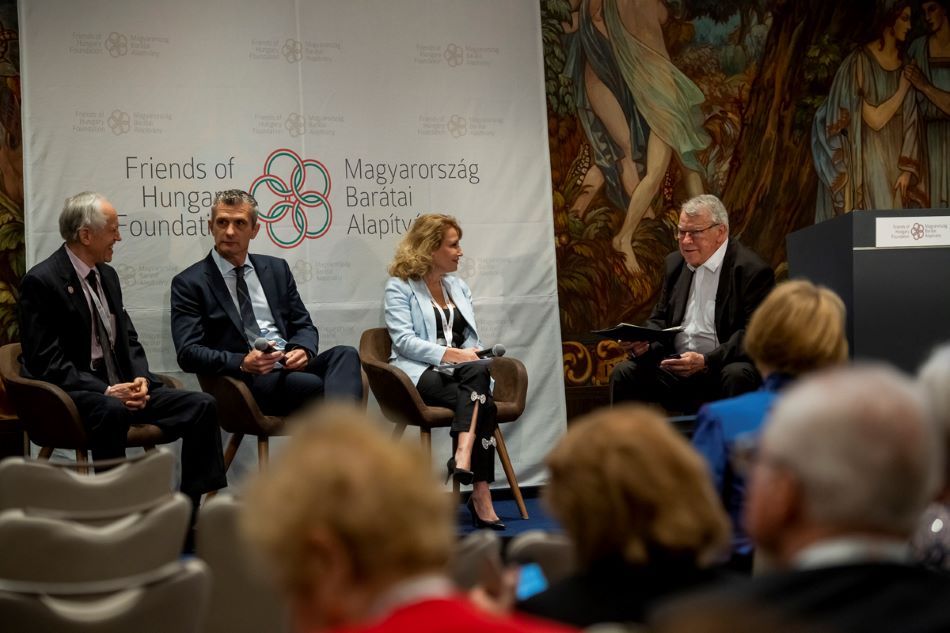
Sarolta Tulipán from Atlanta, Sándor Végh from Washington, and L. Ákos Nagy from New Jersey shared their insights on the American-Hungarian relationship. They agreed that economic and military relations that have existed for decades are good, but there are disagreements in the field of diplomacy. Recently, negative news about Hungary has appeared in the media. Emphasizing mutual respect based on the principle of reciprocity and more delicately worded diplomatic messages can be a solution.
After the discussions, the participants asked the speakers questions.
In the afternoon, the President of the Republic Tamás Sulyok and his wife Zsuzsanna Nagy welcomed the conference participants in the Sándor Palace. Tamás Sulyok spoke to the representatives of scattered Hungarians about the importance of unity, because, as he said, the voice of good people can be suppressed if heard individually. When we talk about the Hungarian position, it is worth sharing our common values with the world, which are faith, sovereignty, peace, family, community, justice, compassion and agreement. He thanked the participants of the conference that with their work they help the acceptance and better understanding of the country, and they represent and convey the thousand-year-old Hungarian culture all over the world.
After his short speech, the representatives of various organizations of the diaspora were able to talk to the head of state personally.
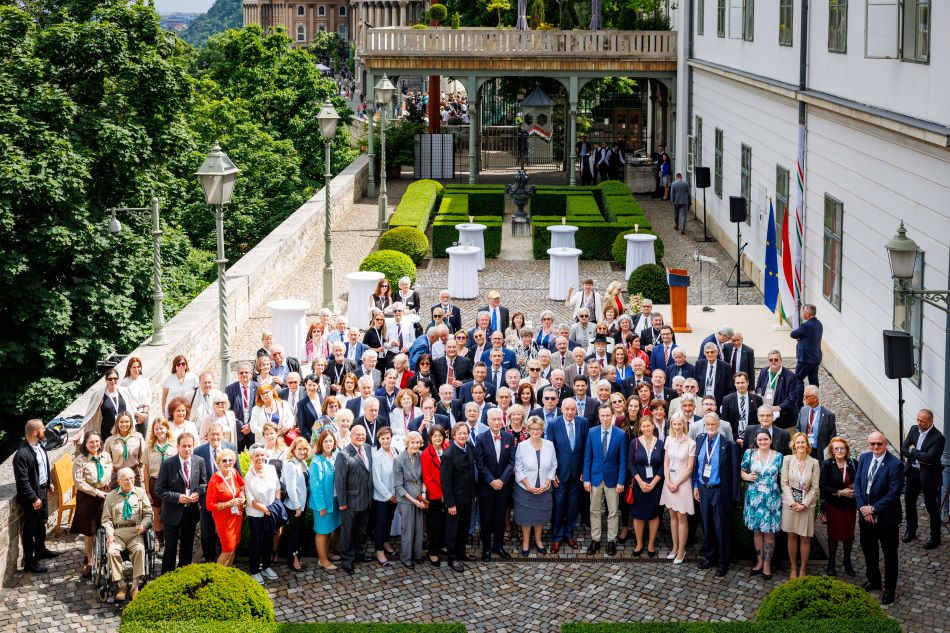
Returning to the conference venue, the participants listened to three more presentations. The first was held by journalist, film director and producer Réka Pigniczky about the Memory Project, of which she is one of the creators. As part of this program, the stories of the Hungarians who emigrated after the Second World War and the 1956 revolution are recorded on film. These are also important historical documents, which through their personality help to better understand and bring the student closer to the events of the given era. The filmmaker also presented a different kind of work, which he made about the 50-year existence of the Kaláka band.
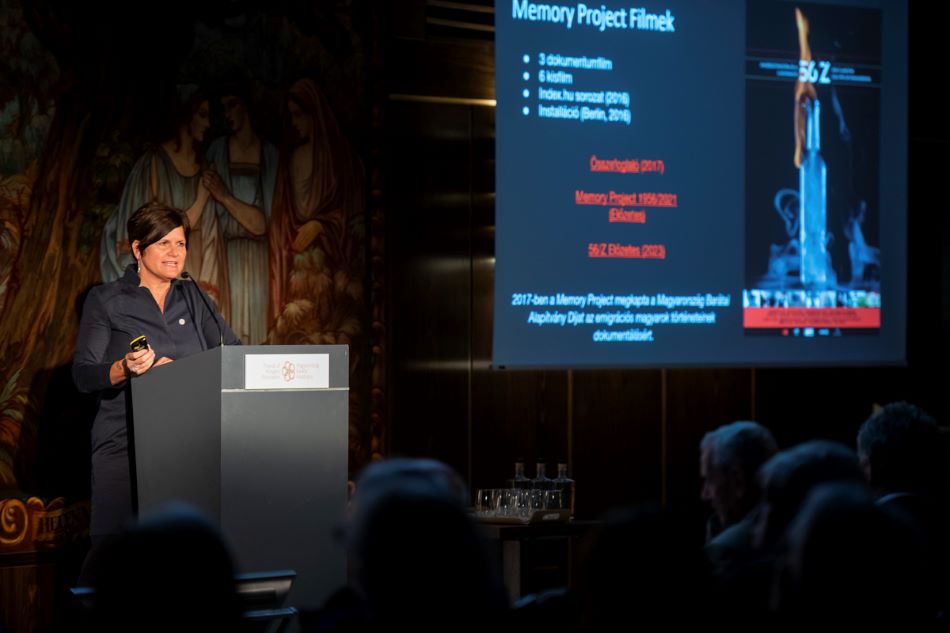
The second speaker of the afternoon was Imre Lendvai-Lintner, president of the Foreign Hungarian Scout Association. The association operates on 4 continents and 14 countries. They have 66 teams, and because of the wave of emigration in recent years, new teams are also forming in Ireland, England, Luxembourg and Germany.
In response to the basic question of the conference, what can be done to improve the negative image of the country, Lendvai-Lintner said that the role of individuals is very important. The younger ones can present folk dances and folk costumes in their schools, the older ones can even provide explanations for certain suggestions that they receive from their immediate environment. It is important that they receive comprehensible answers suitable for their age group, so it is very important that the respondents have up-to-date information.
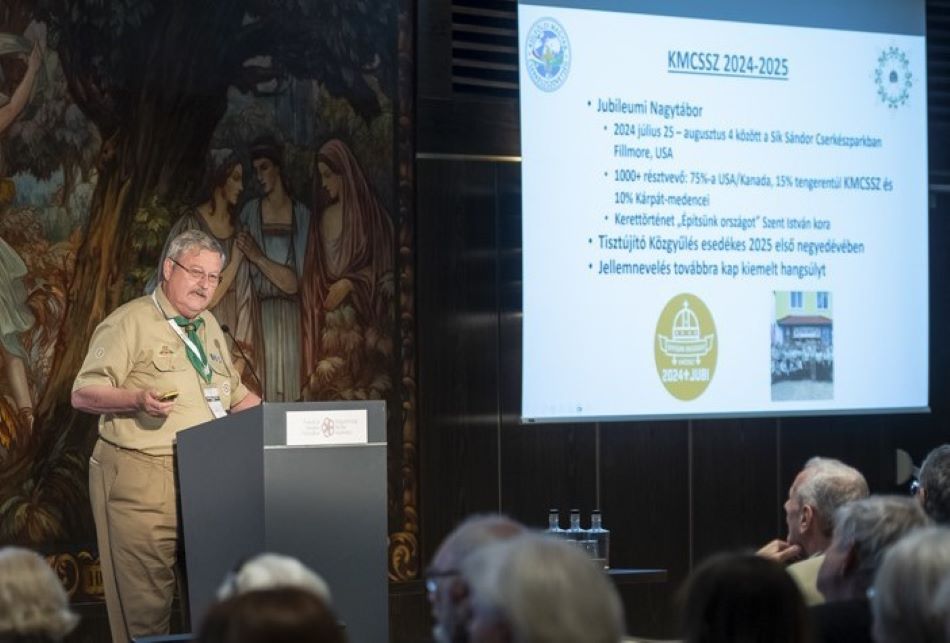
The final lecture of the conference was given by academician Károly Kocsis, Széchenyi Prize-winning geographer, entitled The present and past of the Hungarian world diaspora. The theme presented the migration of Hungarians from the Middle Ages, within and outside the constantly changing national borders. Illustrated with data and maps, Károly Kocsis spoke about the external and internal political and economic causes of migration and emigration, which determined the periods of population migration from the Middle Ages to the present day.
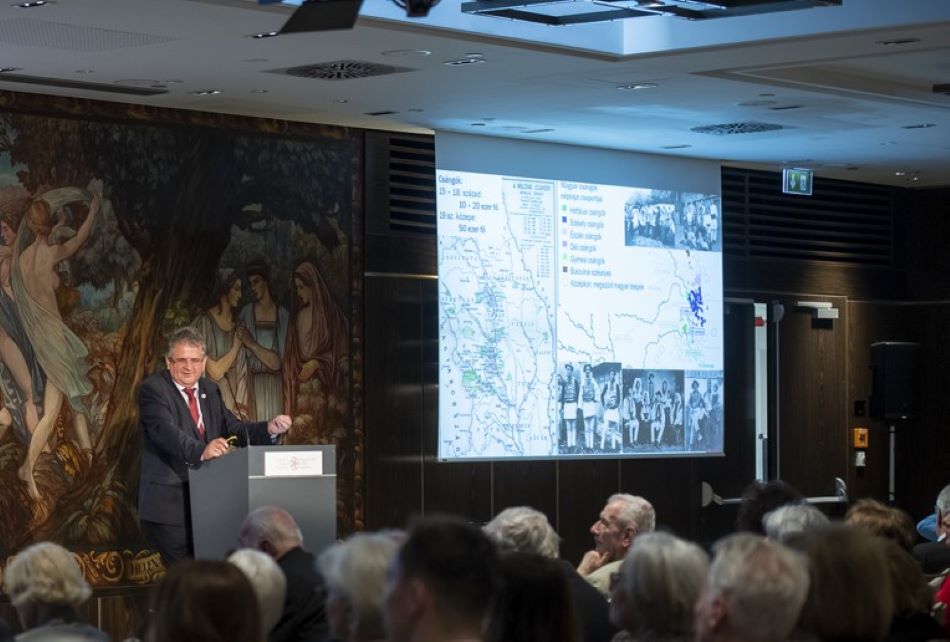
This year's meeting ended with two cultural programs. One of them was a highly successful dance performance by the Nagykárolyi Rekettye Egyesület. Several generations have grown up in the ranks of the Rekettye folk dance group, which was founded 30 years ago. Currently, a total of 120 children, young people and adults are dancing in five age groups. In their stage production, they presented the Hungarian dances, folk songs, and ballads of their ethnographic landscape unit, Szatmár County, as well as some regions of Transylvania, in beautiful folk costumes.
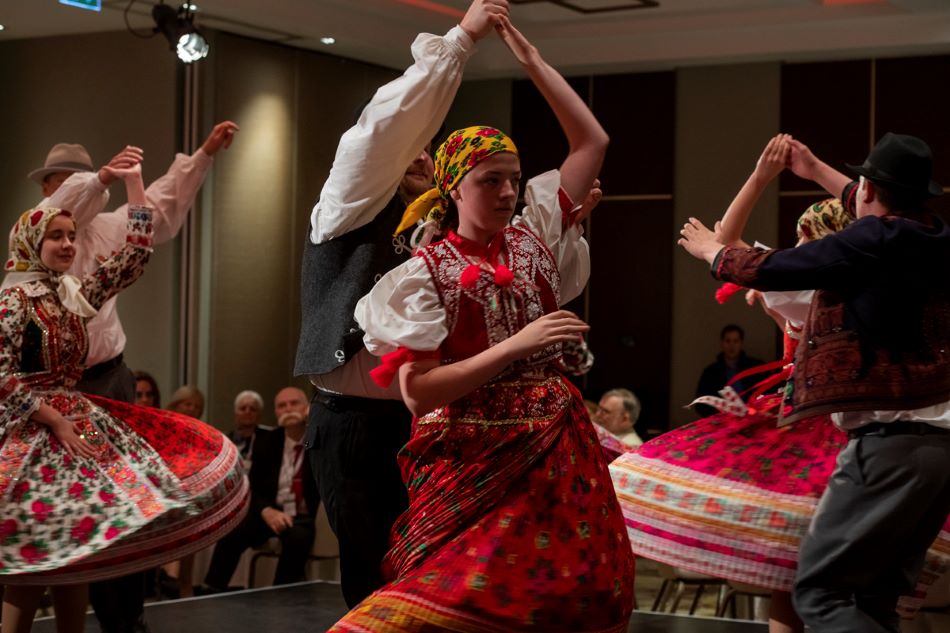
On Sunday, the participants of the conference visited the House of Music Hungary. Several groups visited the building designed by the Japanese Sou Fujimoto, which is closely related to its surroundings. The tour guides spoke with great enthusiasm about the not at all simple construction and the special solutions arising from the shape of the building, and they answered the questions of our members with at least as much enthusiasm. The special visual and musical spectacle of the "Hangdóm/Sound dome" became an unforgettable memory for the participants.
